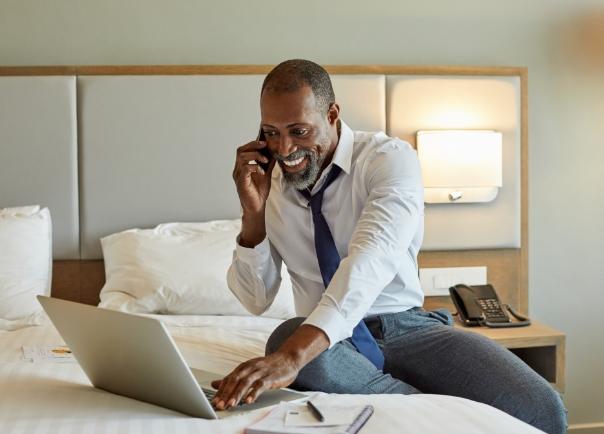The pandemic will be remembered as a period of constant, unpredictable change, and while life has vastly returned to ‘normal’, changes such as hybrid working are likely here to stay. The desire and ability for Aussies to work comfortably, efficiently and productively from outside the office has shifted how businesses operate. As a result, these new arrangements and the need for employers to retain staff – while, admittedly, presenting ongoing challenges for businesses – is leading to the emergence and growth of new business travel trends.
Despite many Aussies working from home, the demand for business travel continues to increase - growing by 988% internationally and 20% domestically between 1 February and 31 May 2022.
Tom Walley, Global Managing Director at Corporate Traveller, says: “Most of our customers in the service sector, consulting, medical and technology industries have hybrid working arrangements in place, yet we’re seeing a significant uptick in business travel this year – and this just goes to show that face-to-face communication remains highly valued.”
Tom says the current environment of labour shortages combined with the successful adaptation of remote working arrangements in many industries is driving this trend. “I think employers are using travel to retain people, and now it can be combined with work.”
Corporate Traveller has witnessed the development of new business travel trends as a result. Below, Tom shares the top 4 emerging travel trends.
- Bleisure. A combination of business and leisure, bleisure is one of the many new buzzwords in frequent rotation since the pandemic, with more travellers extending their business travel to incorporate time for leisure. At Corporate Traveller, we’re seeing an increase in our employees extending both domestic and international work trips to relax and enjoy a holiday, including with their family members. Our travel advisors are also organising trips where our business customers are covering the cost of part of the trip, pointing to a bleisure arrangement.
- Extended working holidays. One of the most popular perks of hybrid working is the ability to ‘clock in’ from anywhere in the world. With no expectation to go into the office, some executives are basing themselves in holiday destinations for weeks or months to enjoy a break from their everyday lives while continuing to work full-time. The trend has become very popular: Airbnb has observed a tripling in bookings of 28 days or more from the US for remote-based work, and progressive companies such as Google are allowing employees to ‘work from anywhere’ for up to four weeks a year.[1]
- Travelling to ‘break up’ WFH. While many executives are enjoying the flexibility of working from home, it can be mundane to work, eat and sleep under the same roof every day. As such, being based at home is encouraging executives to travel for work more frequently to different locations, to connect with other stakeholders as an exciting and productive change of scenery. Corporate Traveller bookings found that many of its customers are taking more frequent trips to more cities, while recent research in the US found one in four companies forecasted that working from home will lead to more travel to company headquarters.
- Travelling more often. The demand for all these new travel trends is present globally. In the US, workers are planning twice as many bleisure trips this year, with more than half adding three or more days to their leisure trips to include remote working.[2] The same research also found employees who plan to do some work while travelling planned twice as many trips, and longer trips for the year.[3]


